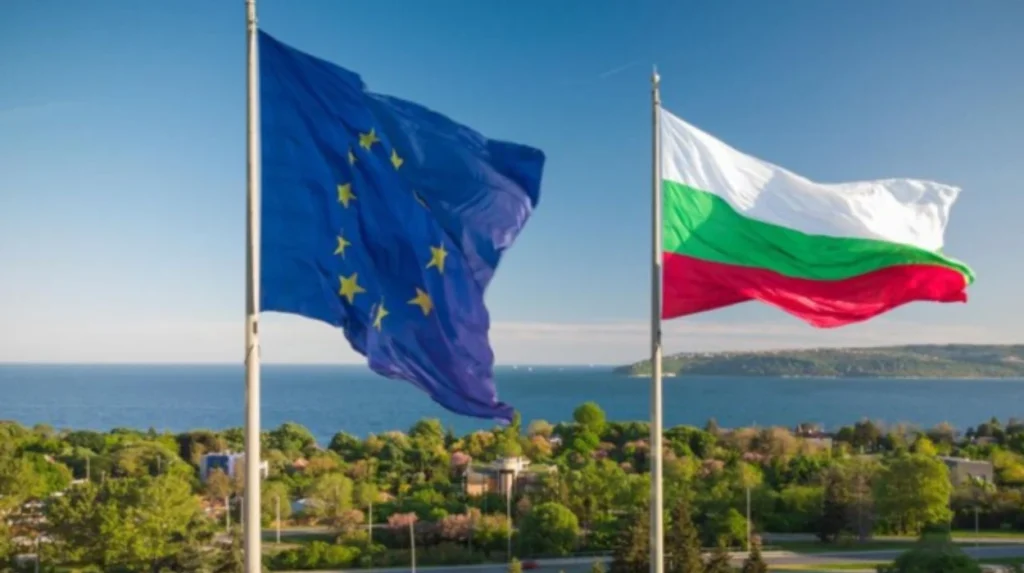The European Commission (EC) has taken the significant step of freezing part of Bulgaria’s requested recovery funds amid delays in fulfilling a crucial anti-corruption reform milestone. The decision directly impacts Bulgaria’s second payment request of €653 million under the EU Recovery and Resilience Facility (RRF), part of the larger €6.17 billion grant package Bulgaria secured for post-pandemic recovery and long-term reforms. This freeze underscores Brussels’ insistence on structural and operational independence of anti-corruption institutions as a non-negotiable condition for fund disbursement and reflects mounting concern about rule of law and governance challenges in Bulgaria.
Context of the Recovery and Resilience Facility and Bulgaria’s Obligations
Bulgaria, having faced a protracted political crisis over several years, has struggled to meet milestones and targets set out in its RRP, which aims at fostering economic growth and institutional reform. The second payment request, submitted on July 23, 2025, was subject to assessment of 59 milestones related to governance, digitalization, infrastructure, and other sectors crucial for recovery. The EC confirmed that Bulgaria met 58 of the 59 milestones successfully, however, the reform tied to establishing an independent and autonomous Anti-Corruption Commission remains unfinished.
This reform is critical for ensuring transparency, accountability, and the fight against entrenched corruption—a persistent issue that has frequently drawn scrutiny from the EU and international watchdogs.
EU Commission’s Position on Anti-Corruption Reform
Markus Lammert, spokesperson for the European Commission, reiterated the Commission’s non-negotiable stance on the structural and operational autonomy of anti-corruption bodies as
“key requirements for proper and effective exercise of their functions.”
He emphasized,
“We will respond to the letter and it is for Member States to act in line with these requirements,”
clearly signaling that failing this condition will result in the continuation of financial sanctions.
Besides structural independence, the Commission also expressed awareness of domestic political dynamics that risk compromising judicial processes by “weaponizing” institutions against political opponents, a point stressed by European Parliament groups including Renew Europe, which previously called for fund suspension.
This environment allegedly also fuels democratic backsliding, highlighted by the imprisonment of prominent local officials like Varna’s mayor Blagomir Kotsev, viewed by many as emblematic of politicized prosecutions undermining Bulgaria’s democratic credentials.
Political and Economic Stakes for Bulgaria
The freeze on this tranche of EU RRF funds injects fresh tension into Bulgaria’s already strained economic and political landscape. The delay threatens to impede the government’s ability to effectively manage ongoing recovery efforts and investment projects critical for economic growth. The country’s ambition to join the eurozone in 2025 hinges partly on maintaining fiscal discipline, including containing budget deficits under 3% of GDP; loss or suspension of EU funds would complicate these targets.
Deputy Prime Minister and Finance Minister Lyudmila Petkova warned of the urgency, stressing that
“Bulgaria risks losing billions in EU funds, potentially derailing its eurozone ambitions.”
Equally, the national budget may face additional strain given reliance on EU grants to finance modernization in areas such as infrastructure, education, and digital transformation.
Broader EU Reaction and Democratic Concerns
The freeze aligns with broader European efforts to enforce rule of law conditions linked to EU funding, following similar freezes and suspensions targeted at member states such as Hungary and Poland over judicial independence and corruption concerns.
Renew Europe, a prominent centrist political group in the European Parliament, publicly urged the Commission to take a tough stance. Referring to the recent political imprisonments, they asserted,
“The imprisonment of Varna’s mayor is alarming proof of democratic backsliding in Bulgaria”,
demanding tangible action to disallow institutional misuse.
This pressure highlights the EU’s heightened vigilance not just on procedural reforms but also on democratic norms and civil rights protection within member states.
Steps Moving Forward and Potential Outcomes
Under established procedures, Bulgaria now has a one-month window to submit additional information, explanations, or corrective measures addressing the incomplete anti-corruption reform. Should the Commission determine that progress remains insufficient after this timeframe, the payment portion linked to the reform will continue to be suspended for up to six months while the government attempts to meet the benchmark.
It is in Bulgaria’s interest to complete these reforms promptly to unlock not only the €653 million pending but also to maintain future disbursements under the Recovery and Resilience Plan, which allocates €6.17 billion in total grants. If reforms are sustained and verified, the Commission may lift the freeze and release the withheld funds, allowing Bulgaria to move forward with critical national projects.
Failure to comply risks a prolonged funding halt or even partial cancellation that would have severe economic repercussions and deepen Bulgaria’s political instability.
Historical Background on EU Funding Challenges in Bulgaria
Bulgaria’s problems with EU fund management stretch back several years. Prior EU suspensions have occurred due to fraud, corruption, and neglect of rule-of-law standards. Notably, the EC previously frozen agricultural and roads funding amid investigations revealing contracts awarded to relatives of officials and organized crime infiltration.
Bulgarian political leaders have acknowledged systemic challenges; former Prime Minister Sergei Stanishev remarked,
“There is a discrepancy between the political will, which is a fact, and the achievement of concrete results,”
focusing attention on the need to improve fund management capabilities.
Despite such setbacks, significant portions of Bulgaria’s EU funds have driven progress, and many citizens reportedly support stringent EU measures to combat corruption, viewing them as necessary to shield EU money from misuse.
Impact on Governance and Institutional Credibility
The delay in anti-corruption reform represents a critical test of Bulgaria’s governance capacity. Effective independence, transparency, and functionality of the Anti-Corruption Commission is paramount to winning back public trust and ensuring the integrity of future investments.
Without these reforms, Bulgaria risks deepening accusations of institutional capture by vested interests, undermining its broader aspirations within the European Union project.
Concluding Observations
The European Commission’s suspension of Bulgaria’s recovery funds over the delay in key anti-corruption reforms marks a pivotal moment. This action reinforces the EU’s commitment to linking financial support with strict governance standards, particularly in member states with histories of corruption and democratic erosion.
The coming weeks will be crucial for Bulgaria to demonstrate tangible political will and operational progress. The effective rebuilding of anti-corruption institutions is not just a formality but a necessary foundation for long-term economic stability, democratic resilience, and successful integration into the eurozone.
For Bulgaria, the stakes are high: fulfilling these reforms on time could unlock billions of euros vital to its recovery and development ambitions, while failure risks punitive measures that will exacerbate political and economic challenges.







